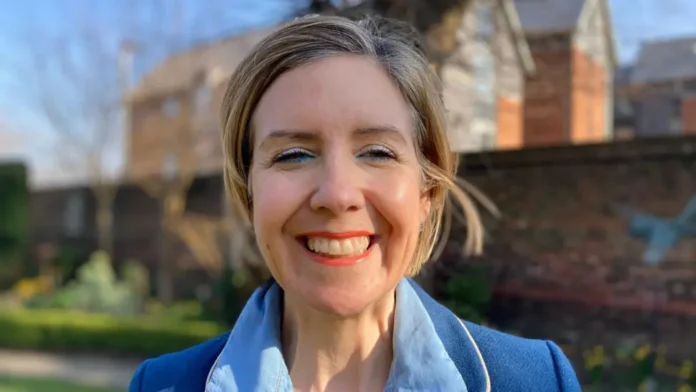4.66 billion people around the world have access to the Internet. That is 65.6 percent of the entire world’s population. 4.28 billion access the internet via their mobile devices, which shows how important the Internet is to our daily lives.
In 2020 more than 2.14 billion people worldwide used the Internet to purchase products and services. However, it seems that more people are more interested to use the Internet to interact with others than go shopping. In 2020, 3.96 billion people were active social media users which is an increase of 10% compared to 2019. But, even though there is an increase in social media users, not everyone is happy with the current social media platforms.
According to a recent report by Edison Research and Triton Digital, Facebook the major player in social media lost an estimated 15 million U.S. users in 2020 compared to 2017. A new report found that other major social media platforms are losing users to their rivals, so what has happened?
One new social media platform believes the huge drop is down freedom of speech being denied. Wabitz.com who have launched a new social media platform that allows people to keep their freedom of speech alive, believe people are fed up with not being allowed to say what they want to say. So, we decided to find out if this was true and what their new social media platform was all about. Here is what they had to say.
- First of all please introduce yourself?
Sure, I’d be happy to introduce myself. I’ve been building websites for more than 20 years, for major manufacturing companies, ecommerce stores, and media outlets. Those who really dig into my background will find that I’ve been challenging government authority for quite a while in my own way. Once, I even ran for Secretary of State in Missouri. That was back in 2008. I was the youngest person to ever get an established party’s nomination. So, that should tell you I’ve been fighting for liberty for quite some time. So, when people ask who Wes Upchurch is, I tell them I’m a tech savvy freedom fighter. But I don’t consider myself a revolutionary. First and foremost, I’m a father who is concerned about the kind of world I leave behind.
- You have launched a new social network; can you tell me more about the new network?
Wabitz.com is a different kind of social network. It is one where you can freely speak your mind. You can share the stories and pictures that matter most to you, debate the issues of the day, or form groups. It has the features you have come to expect from social media, but we’ve left one thing out. We’ve eliminated the heavy moderation, that means no filtering of unpopular opinions, no fact checking, and not removing content just because we disagree with it.
- How is Wabitz different from other social media platforms?
Well, from the outset it’s been designed as the kind of network to facilitate discussion. Other’s focus on pictures, videos, or short snippets. But, Wabitz was designed with discussions as the focal point. We still have status updates, but discussions are their own unique kind of post. How you engage is also more in your control. There are actually three different feeds, instead of just a single timeline. This lets you quickly find the news that’s most relevant to you, engage in the latest discussions, or see what’s most popular. Other networks may filter out stories they deem irrelevant to you, but we let you see all of your followers’ posts and well as the broader discussion.
- You say that social media platforms are no longer places where you can use free speech, can you explain what you mean by that?
I think the last year has shown us that Twitter, Facebook, and YouTube are more than willing to censor information that they disagree with. There is the official version of the day’s events, then there are differing opinions. I think we create a dangerous precedent when we limit minority voices. There is also the issue of shadow bans. That’s where the other networks limit the reach of a particular post or individual because of its content. In some cases, they’ve removed the accounts of people who have controversial opinions. But, the right to free speech wasn’t created to protect the rights of people with popular opinions, it was made to guarantee that even those with controversial opinions would be free to express those.

- You say a lot of social media platforms have changed over the years, please explain?
Originally, social media was a way for people to connect with friends and family. Maybe they would share information about their accomplishments or family outings. But overtime, the platforms have evolved to become a primary source of news. I don’t see a problem with this. The problem is that instead of just being a platform for engagement, the tech giants have begun to curate that news. It could easily be argued that in doing so, they have actually become publishers of that information. When a platform engages in that behavior, it could easily be argued that they lose the liability protections of Section 230. Sure, there is still freedom of press. But to act as though most social networks can still be considered public forums, permitting free speech, is a falsehood. In a true public forum, a person’s right to free speech can’t be infringed.
- You say there are privacy concerns and attempts to limit free speech, what would you class as free speech which social media platforms are not allowing?
Well, we don’t have to look back that far to find examples. In 2019, Facebook paid a record $5bn fine to settle privacy concerns, the US Federal Trade Commission (FTC), after it was revealed that personal data was illegally harvested from an online personality quiz and sold to Cambridge Analytica. Likewise, Twitter inappropriately used private contact information to serve up targeted ads to users, without the user’s consent. In a post #metoo era, consent should matter in every aspect of our lives. These apps, and others, are increasingly asking for more private information. You’ve got to ask what are they doing with it?
With regards to the second part of your question, I think it’s pretty obvious that the major social media companies are using various techniques to limit free speech. They label posts they disagree with as false or misleading, they provide links to curated news sources as evidence, and removed thousands of accounts from mostly conservative figures. That’s not ok! It should be up to the people to decide what is an isn’t true. Any attempt to deny access to a message is limiting free speech. Free speech is the ability to criticize public figures, to have opinions on the issues of the day. It doesn’t matter whether it’s a political figure, religious figure, or public health figure. People have the right to question the information they are presented and express their opposition to the popular opinion.
- If you are saying allow people to use free speech then how do you stand on bullying on social networks and racist behaviour and trolls?
We want our network to be welcoming of all opinions, but that doesn’t mean that you’ll find every opinion to be one you agree with. The simple fact is that you can’t have both free speech and the right to not be offended. But if someone acts out of line, there are tools in place to block them.
- So, how will your social media platform which is called Wabitz deal with trolls and racist behaviour?
We have clearly defined terms of service that define acceptable speech. Those are clearly in line with what constitutes legal speech. Clearly, using speech to facilitate violence or incite hatred against any specific group is clearly illegal. We have reporting tools in place for such behaviors. But it’s not illegal for people to have a specific view. As ugly as some people can be, they have every right to hold their own opinion. We aren’t going to ban anyone just for disagreeing with the opinion of another.
- Are you not worried that by allowing people to post what they want to post that you could face legal action?
No, Section 230 of the Communications Decency Act expressly provides services like ours with liability protection. And the constitution guarantees every citizen the right to free speech.
- You say you will never ban an account because their views are unpopular, let me ask you what would it take for a user’s account to be banned?
Well, not all speech is legal speech. Clearly you can’t stand behind free speech to protect yourself from advertising illegal services. Threats of violence are likewise illegal. Using the network for purposes that aren’t in line with the law could get someone banned. But, simply disagreeing, even strongly, with what someone says won’t. You have the right to disagree with other viewpoints, even if those opinions come from reliable media sources or the government.
- Do you believe that more people will come over to your platform from the main social media platforms?
Well, I certainly hope so. We wouldn’t have invested so much in building a platform if we didn’t think it would appeal to a huge market. People are fed up with regulation and control. When they are offered freedom, they’ll almost always choose freedom. Privacy is likely of paramount concern. Users that are worried about what the corporate elite is doing with all the information they are gathering will likewise come over. Wabitz was built with privacy, security, and free speech in mind. I have no doubt that when people discover there is a platform offering all three, they will come over.
To learn more about Wabitz.com, please visit https://wabitz.com/


